Business
FG plans direct credit to vulnerable citizens through BVN
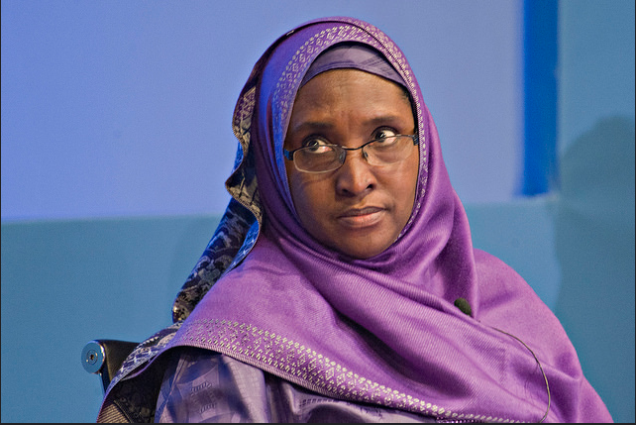
The Minister of Finance, Budget and National Planning, Zainab Ahmed, has said the Federal Goverment, through the National Social Safety Nets Coordinating Office, is developing a Rapid Response Register to quickly scale up the enrolment of poor and vulnerable citizens.
She said this at the Open Government Partnership 2020 Virtual Leaders Summit Roundtable.
The event was to advance discourse and innovation around open response and open recovery measures in response to the COVID-19 pandemic.
According to her, data for the register are being sourced through primary and secondary sources, including the Nigeria Inter-bank Settlement System and the National Communication Commission database on mobile phone users.
In order to ensure transparency as well as mitigate corruption risks, the Minister said that payments would be made directly to the accounts of the individuals, using their Bank Verification Numbers.
Speaking on the Federal Government’s response to the COVID-19 pandemic under the leadership of President Muhammadu Buhari, the minister said, “Our response to the COVID-19 pandemic has been proactive, people-oriented and aimed at averting drastic economic decline and protecting our most vulnerable citizens.”
The minister added that the government was currently implementing a multi-sector economic sustainability plan.
According to her, a key priority for government is to deploy funds transparently, and in a targeted and efficent manner that maximises the impact, in keeping with the government’s commitment under the OGP national action plan.
She said, “This is especially important given our limited fiscal space and low domestic revenues.
“To this end, in addition to existing OGP measures around budgeting, citizens’ engagement, open contracting, anti-corruption and others, we have introduced measures to sustainability enhanced fiscal prudence and transparency.”
She explained further that Government had also established a technology-enabled result-based performance management framework to track expenditures under the ESP, including the fiscal stimulus package and other government interventions.
Business
Nigeria remains oil/gas investment destination with $5bn shell FID – TDF
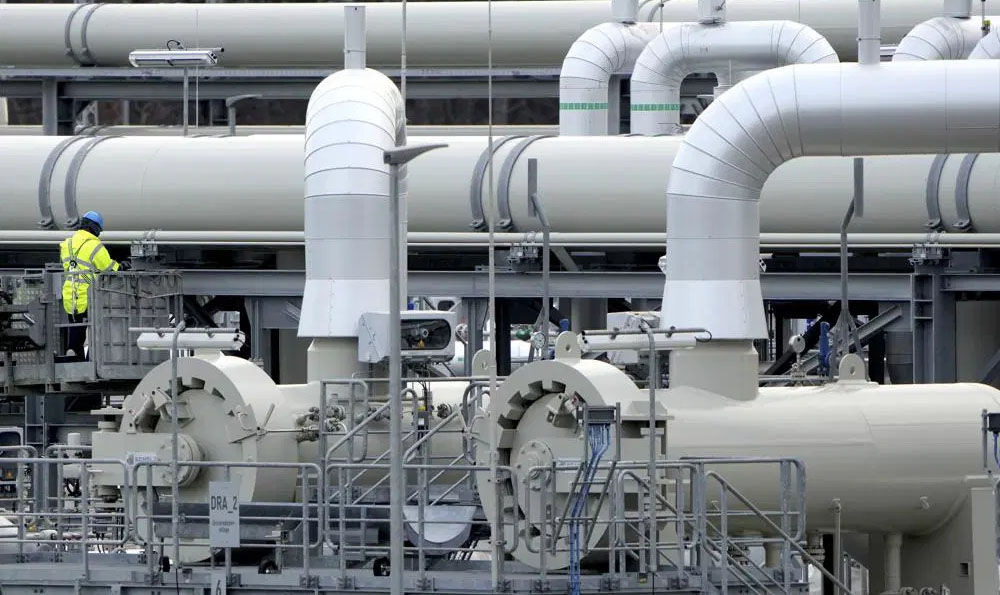
Nigeria remains oil/gas investment destination with $5bn shell FID – TDF
The Democratic Front (TDF) has announced that Shell’s $5 billion Final Investment Decision (FID) for the Bonga North Deep Offshore field further highlights the investment-friendly approach of the Tinubu administration.
This was disclosed in a statement signed by the Chairman, Mallam Danjuma Muhammad, and Secretary, Chief Wale Adedayo.
The group explained that the investment demonstrates how International Oil Companies (IOCs) still see Nigeria as an attractive destination for investments.
“We join President Bola Tinubu in celebrating the Final Investment Decision (FID) by Shell on Bonga North Offshore Field.”
“It is a thing of pride for us that the investment is the outcome of reforms introduced by the President through the Presidential Directives numbers 40, 41, and 42 to fast-track regulatory approvals, reduce operational costs, and promote competitive fiscal incentives in the oil and gas sector.”
READ ALSO:
- Baby freezes to death overnight in Gaza as ceasefire delays
- I was not removed by Tinubu – Ex-Women Affairs minister [VIDEO]
- Ghanaian president approves visa-free entry for all Africans
“We have a conviction that the pertinence of the fresh investment in the sector and indeed the larger Nigeria economy is not only limited to the $5 billion value of the investment but also extends to the field’s potential volume of 350 million barrels of crude oil. It is a development that is bound to further raise the nation’s oil output and revenue as well as bolster its position as Africa’s largest oil producer.”
The group noted that this and other strategic investments, such as TotalEnergies’ $500 million in the Ubeta gas field, are driven by President Tinubu’s fiscal incentives, showcasing the success of his reforms in attracting foreign direct investment to Nigeria’s oil and gas sector.
“The Ubeta upstream field is estimated to produce 350 million standard cubic feet of gas per day when operational and will go a long way to raise the country’s profile as a major gas producer. This remarkable economic feat was unarguably achieved under the economic reform of President Bola Tinubu.”
“It is instructive that since its discovery in 1996, the Bonga deepwater field, located in OML 118, at a water depth exceeding 1000 meters, has not witnessed such a humongous investment as the $5 billion coming from Shell and this is an attestation of President Tinubu’s pro-business approach to governance.”
“Furthermore, this extraordinary display of confidence in Nigeria’s investment ecosystem is a confirmation of the success of the current reforms in eliminating investment encumbrances and the risks of doing business in Nigeria.”
TDF is confident that more IOCs will key into the fiscal incentives introduced by the Tinubu administration to make fresh investments in Nigeria’s oil and gas sector.
Nigeria remains oil/gas investment destination with $5bn shell FID – TDF
Business
Be creative, monarch, others challenge Muslim professionals on economic revival
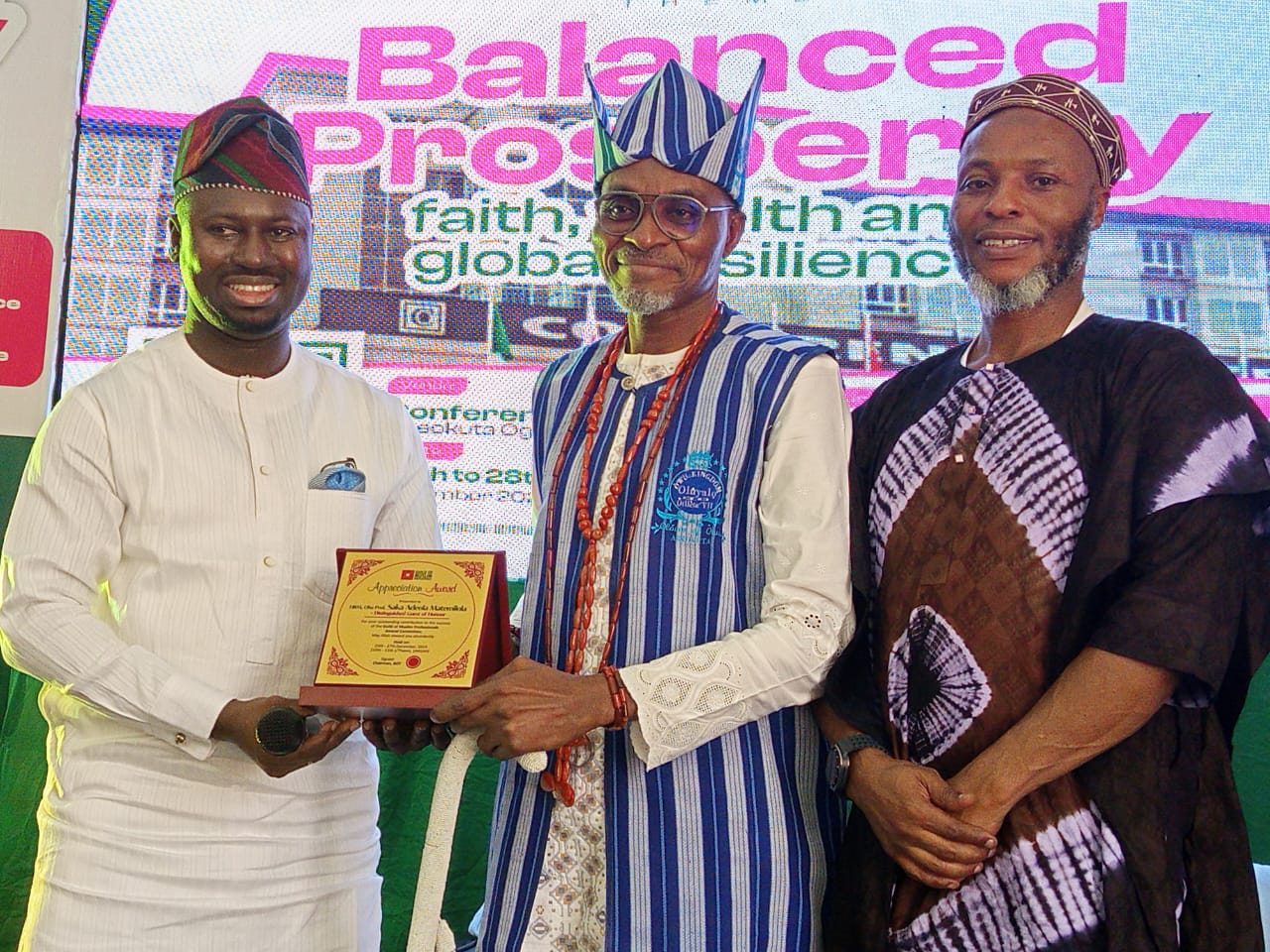
Be creative, monarch, others challenge Muslim professionals on economic revival
Professionals in different fields of studies, especially Muslims, have a major role to play in turning around Nigeria’s ailing economy through creative research.
This, they said, was necessary for sustainable wealth creation and balanced prosperity.
This is the general view canvassed by some Muslim leaders and a monarch at the opening session of the 2024 Guild of Muslim Professionals (GMP) Convention held in Abeokuta, Ogun State, on Wednesday.
Themed, ‘Balanced Prosperity: Faith, wealth and global resilience’, the three-day conference is a gathering of Muslim professionals all over Nigeria in an effort to discuss pressing topical issues facing the Muslims and other people in Nigeria
Chairman, Board of Trustees, Dr Akeem Oyewale, in his welcome address spotlighted the reasoning behind the theme of the 2024 edition of the conference emphasizing that the complexity of the modern world creates an urgency for its discourse.
He said, “As professionals, we are in a privileged position to ensure that wealth creation and distribution are ethical, inclusive and beneficial to the society. Whether through entrepreneurship or public service. We must prioritise transparency, support charitable initiatives and create opportunities for others to thrive.”
The Olowu of Owu Kingdom, Oba Saka Matemilola, urged the professionals to always proffer solutions to the myriads of challenges facing the nation.
This, the monarch said, would make a difference in the society.
Oba Matemilola challenged the Muslim professionals to engage their innovative minds in creating noteworthy accomplishments in their various fields.
He said, “No matter how much resources we have, if not properly managed, it is nothing. We cannot continue to remain docile. I want to charge my fellow Muslims out there to manage our resources properly to translate to prosperity.”
He also spoke on the theme of the event and the benefit it would create when the discourse is established.
“This conference’s theme is a befitting one for the event and I think it is something we need to discuss more as a sect.
“The theme is talking money, physical assets and knowledge, our influence and reach as Muslims and how we use all of these to create prosperity for the general community. When we do that, we also give the non-Muslims an opportunity to see the beauty of Islamic systems,” he added.
Professor of Risk Management and Insurance, University of Lagos, Prof Tajudeen Yusuf, stated that Muslims generally should think individually and act collectively.
While expanding on his address about Takafur, an Islamic alternative to insurance, Prof Yusuf highlighted risk sharing, usury-free transactions and transparency as the major benefits of the Takafur concept.
He said, “Takaful, derived from the Arabic root word ‘Kafala’(guarantee), is an Islamic alternative to conventional insurance. It is a mutual guarantee built on the principles of Ta’awun (mutual assistance) and Tabarru’ (donation). Takaful is distinct in its structure, objectives, and compliance with Shariah principles.”
Using Quranic citations, thought-provoking questions, and case studies of different countries that have successfully used Takafur as a financial aid model during crisis, he further established the balance of the model in meeting demands of economies while adhering to Islamic values.

Linking his address to the theme, the professor added: “Balanced prosperity is not merely a goal; it is a responsibility, faith and wealth. When aligned with ethical principles, can drive resilience and sustainability. Takaful exemplifies this balance, offering a Shariah-compliant model that meets the demands of modern economies while adhering to Islamic values.”
Rector of Yaba College of Technology, Dr Ibraheem Abdul, in his goodwill message enjoined the muslims to embrace the teachings of the holy Qur’an in deciphering actionable strategies to guide their lifestyle.
Executive Director/Chief Finance Officer (CFO) MTN, Module Kadri, echoing the royal father, urging participants to stop shying away from making their voices heard and start taking actions based on their learnings in the program.
The GMP convention is an annual convergence of muslim professionals in Nigeria to engage in thought provoking discussions, dialogues, workshops and panel sessions by renowned speakers from diverse backgrounds.

From left: Rector, Yaba College of Technology (YABATECH) Dr Ibraheem Abdul; Head to Agency Banking at Remita Dr Hafis Bello, and Summit University Vice Chancellor, Prof Musa Aibinu, during formal opening of Guild of Muslim Professionals (GMP) Convention at the Conference Hotel, Abeokuta, Ogun State…on Wednesday December 25, 2024.

Business
NNPCL launches production monitoring centre
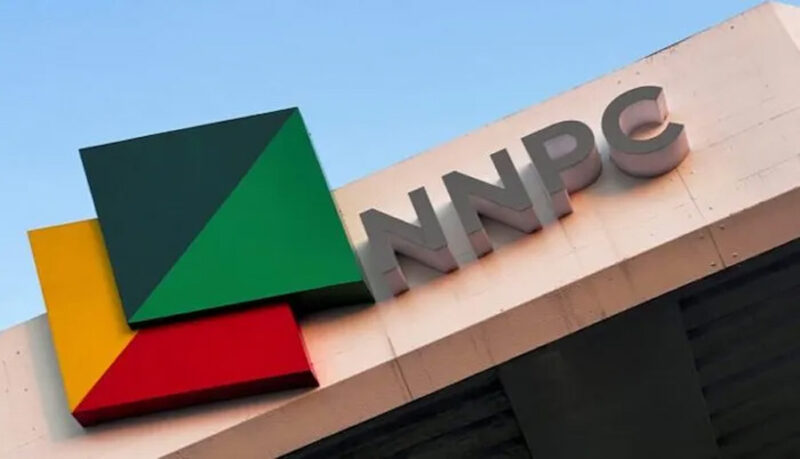
NNPCL launches production monitoring centre
The Nigerian National Petroleum Company Limited (NNPCL) has unveiled the Production Monitoring Command Centre, an initiative designed to revolutionise hydrocarbon operations and drive increased production.
The initiative, led by NNPC Upstream Investment Management Services, aims to improve monitoring, operational efficiency, and production, building on the success of the Command and Control Centre.
Olufemi Soneye, Chief Corporate Communications Officer of NNPC Ltd., stated that the PMCC aligns with President Bola Tinubu’s policy to increase efficiency and boost production in the industry.
A text and video statement were also published on the company’s website on Wednesday.
“The PMCC serves as a unified platform for monitoring hydrocarbon molecules from production to export terminals, covering Joint Ventures (JVs) and Production Sharing Contracts (PSCs).
“By consolidating real-time data from various operators, the PMCC provides a comprehensive overview of production activities. This ensures timely identification of anomalies, minimises unplanned disruptions, and supports seamless operational continuity.
“With advanced analytics and integrated data, the PMCC empowers stakeholders with actionable insights for proactive decision-making.
“This capability enhances planning, resource allocation, and risk management, enabling operators to meet production targets efficiently and maintain high operational standards.
READ ALSO:
- Israel army presence led to six Gaza hostages killing – Report
- BREAKING: Fighter jet targeting Lakurawa terrorists hits Sokoto communities
- Ibadan stampede: She was treated like a terrorist, Queen Naomi’s sister says about her condition
“A standout feature of the PMCC is its support for predictive and preventive maintenance. By monitoring equipment performance and coordinating maintenance activities, the system ensures the reliability and longevity of assets,” Soneye explained.
He went on to say that the PMCC encourages stakeholder engagement by offering a safe platform for data sharing and communication, enabling effective problem-solving and continual development throughout the sector.
Soneye stated that the PMCC’s involvement in reducing downtime and optimising maintenance directly correlates with higher production and income.
“Under Mele Kyari’s leadership, NNPC Ltd. has achieved a production increase to 1.8 million barrels per day (bpd) and is working towards a target of two million bpd.
“The PMCC is integral to achieving this goal by driving efficiency and enhancing production capabilities.
“The PMCC operates 24/7, staffed by trained professionals, and utilises cloud-based solutions to ensure seamless data exchange with internal and external stakeholders.
“With direct communication links to the Industry-Wide Security Command and Control Centre, the PMCC also enhances the security of production operations,” he added.
As NNPC Ltd. continues its modernisation journey, the PMCC shows its dedication to innovation and excellence in the oil and gas sector.
This program not only matches with national aims but also strengthens Nigeria’s position in the global energy market, assuring long-term growth and profitability for stakeholders.
NNPCL launches production monitoring centre
-

 metro3 days ago
metro3 days agoIbadan stampede: Court sends Ooni’s ex-Queen, Hamzat, other to prison
-

 metro2 days ago
metro2 days agoINTERPOL declares 14 Nigerians wanted for drug, human trafficking
-

 metro3 days ago
metro3 days ago[UPDATED] I never lied, truth is my weapon against injustice – Dele Farotimi declares after release
-

 metro3 days ago
metro3 days agoArrest Abuja, Anambra palliative organisers or set those in Ibadan free — MURIC
-

 metro18 hours ago
metro18 hours agoJigawa State governor loses son 24 hours after mother’s death
-

 metro2 days ago
metro2 days agoIbadan stampede: She was treated like a terrorist, Queen Naomi’s sister says about her condition
-

 metro2 days ago
metro2 days agoMakinde speaks on Sharia court controversy in Oyo
-
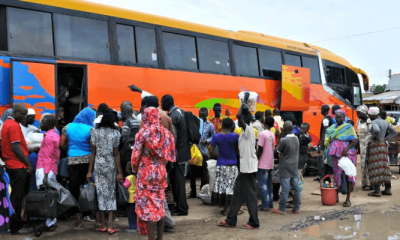
 metro3 days ago
metro3 days agoLuxury bus owners begin 50% fare discount, hail Tinubu palliative







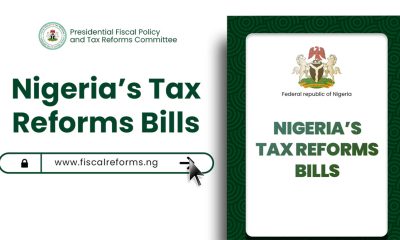



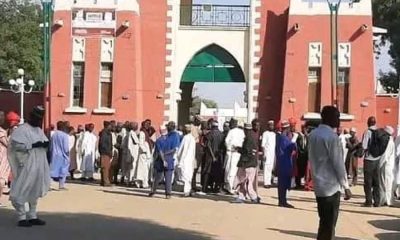


You must be logged in to post a comment Login